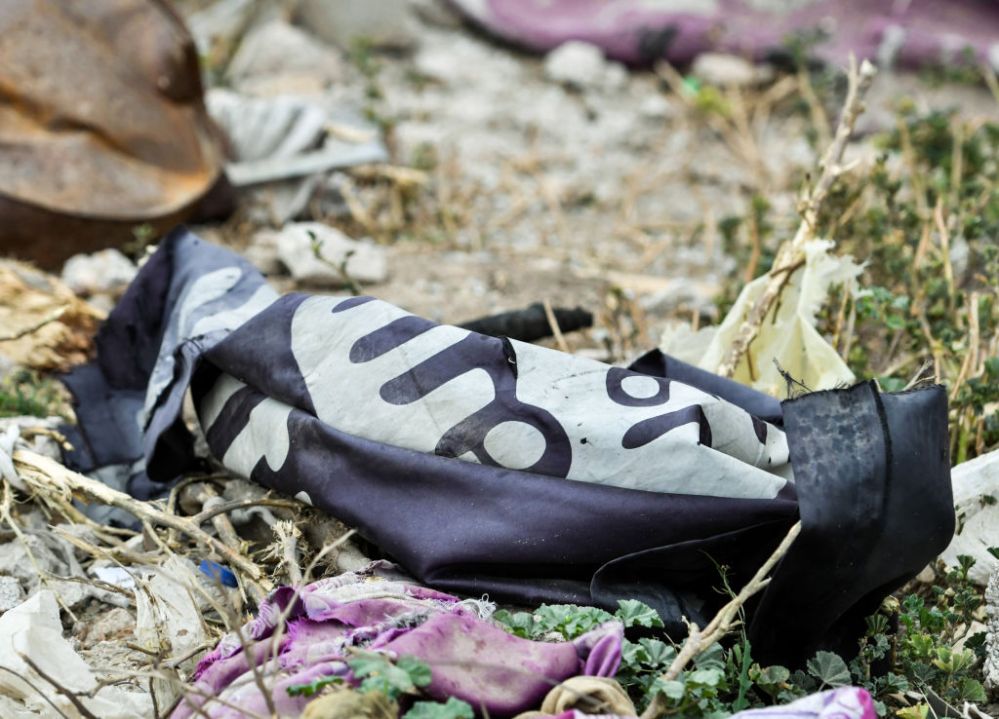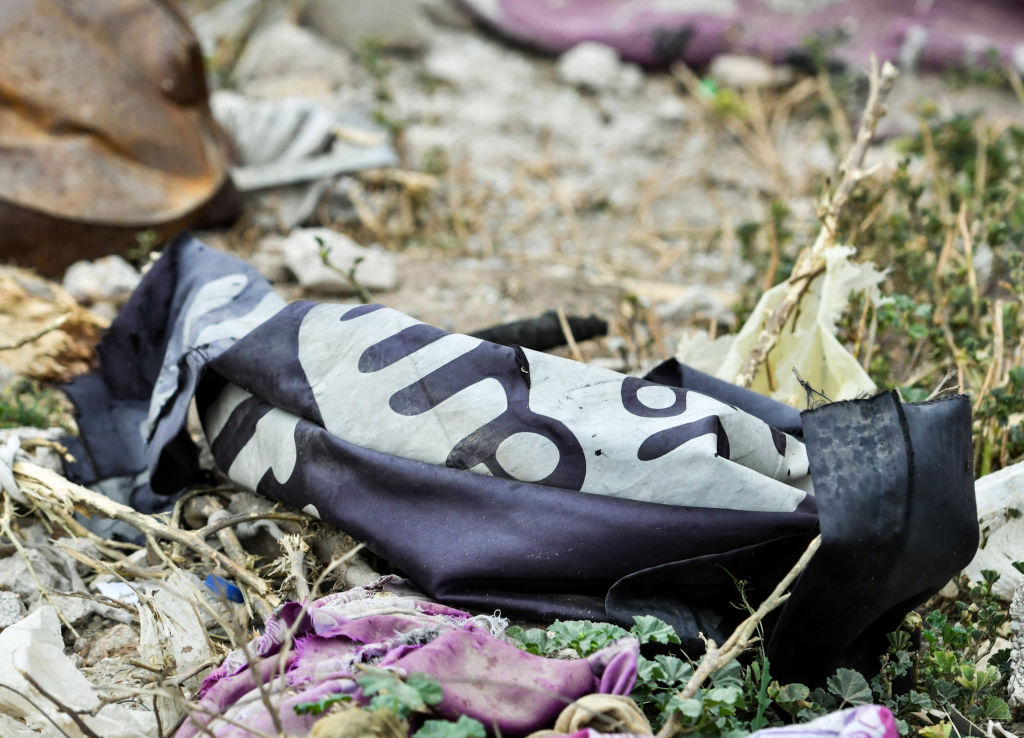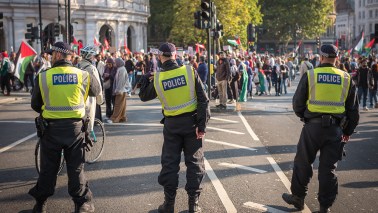Ever since British jihadists flocked to join Isis in Iraq and Syria, the government has attempted to keep the terrorists away by killing them on the battlefield and stripping the survivors of their citizenship. Those who have slipped through the net and made it back home have faced mandatory deradicalisation programs, or – in the most extreme cases – constant surveillance.
But this costly, ineffective strategy has prioritised the rights and freedoms of returning jihadists over the safety of innocent people. And the approach is now likely to face another test, as the 425 or so Isis fighters and spouses who have returned are expected to be joined by their former twisted comrades, who have had their hopes of freedom in Britain bolstered by a recent High Court ruling.
Last week, the court found that the process of stripping citizenship from a grandmother suspected of belonging to Isis was unlawful because the Home Office failed to inform her that it was doing so.
In camps in northeastern Syria where western jihadists are held by Kurdish authorities, dozens of Britons have faced the same fate of having their citizenship revoked. Now there are fears that at least 28 of these suspected jihadists could use the ruling to secure a return to Britain.
Optimism is certainly growing among those who have found themselves in limbo in detention camps after the collapse of Isis. After their passports were cancelled by western governments, many of these former fighters have promoted the idea that they have repented their views and are ready to return to a peaceful life back home. Western jihadi brides, we are told, were ‘groomed’ or ‘brainwashed’, or indeed were simply too young to be judged for their actions, and should be given a second chance.
Unlike many returning Isis fighters in Britain, Alan Duncan, a former soldier in the British army, has ended up in court
In June, former US ambassador Peter Galbraith secured the release of a Canadian woman in the Al-Roj camp. It was claimed the woman had been ‘helpful to law enforcement’ while detained in northeast Syria. Galbraith also suggested that the woman intended to assist police in Canada. ‘She knows a lot about what went on, and is fully prepared to cooperate,’ he said.
For people concerned about the wisdom of relocating those who claim to have turned away from the Islamic State, Galbraith had some words of assurance:
‘She was part of a group of women who have very explicitly rejected the Islamic State. They’ve been wearing Western clothes, they were not fasting during Ramadan, and they were being threatened. I can reassure Canadians that this individual — I’m not saying for all Canadians…does not pose a threat. I’m 100 per cent confident of that.’
Is Galbraith right? Or do these people retain some support for the caliphate they joined? The testimony of soldier-turned-filmmaker Alan Duncan, who has released a documentary, ‘What About Justice For Us?’, calls into question the wisdom of allowing westerners to come home.
Duncan spoke to a Norwegian Isis spouse, who smirked while claiming that Yazidi women ‘weren’t sex slaves, they are slaves that you are allowed to have sex with.’ She also claimed that Isis brides had returned to smoking and other practices they dropped when they joined the terror group so that Westerners would not be suspicious of them.
Back in 2019, Duncan met a Canadian woman in Al-Roj with a young daughter. The suspected jihadist also diminished the experiences of the Yazidi slaves, who she claimed to have met, arguing that they were simply ‘domestic workers.’
Duncan said he met a British-Bangladeshi woman in Al-Hol camp who stopped him as he was leaving the Western section. She told him that she believed in the caliphate, but in the meantime she was going to return to Britain and prepare for the next steps.
Duncan also spoke with another Briton, Samia Hussein, while in the camps. Hussein, who lost her arm in an airstrike, is now living in west London in a £500,000 council house.
But what about Isis’s victims? For them, the future looks rather bleaker.
Naveen Rasho, a 27-year-old Yazidi woman, from Sinjar, a town in Iraq, was captured and enslaved by Isis seven years ago this week. Before returning home after enduring years of captivity, she was kept in Al-Hol camp for over two months, where she met Hussein. She told me that she was ‘very angry’ that Hussein was ‘back in Britain, where she has everything, a home, warmth, support’. Meanwhile, Rasho is attempting to piece together her shattered life back in Iraq.
Naveen says that some of the women she met at Al-Hol camp — where she was surrounded by her captors and tormentors — told her that they wanted to return to the caliphate. She claims some captives said that if Isis had not lost its territory, they would have stayed put, but that they are now seeking to come home. During her time in Isis captivity, Naveen was a slave in a house with four Western Isis brides: two Germans, a Russian, and a Bosnian. Like Hussein, they will likely be allowed to return and enjoy the comforts of their ill-prepared home nations.
And what about Duncan? Unlike many returning Isis fighters in Britain, he has ended up in court. The former soldier served in the Gulf and Northern Ireland and subsequently suffered from post-traumatic stress disorder. He was accused of fraud after continuing to claim his £70-a-week pension when he travelled to the Middle East to fight Isis as a sniper embedded with Kurdish forces. After years of turmoil for Duncan, a judge finally threw out the case last year.
So Duncan — who volunteered to fight and die for his country, who suffered enormously because of his service, who pushed through his pain to fight Isis, and who returned to the region again to reveal what western jihadists really think — has endured more legal pressure than some returning Isis members. This has got to stop. Britain needs to get real, change tack, and act urgently to prevent returning extremists from being afforded the freedom to recruit terrorists and plot attacks from within.
We have struggled to prosecute returning fighters due to the limited evidence recovered from the fast-pace stream of nightmares that consumed Iraq and Syria. There are some who can be shown to have been involved in violent acts, and they will be sent to jail for a long time. But the law is not suited to properly challenge those who joined Isis and sought to radicalise others, but where evidence of involvement in criminal acts fails to meet the standard.
A new Treason Act, to punish those who betray the state by joining terror groups committed to Britain’s destruction, would surely help resolve this unsustainable situation. For too long, the government has relied on a strategy of deradicalisation — with insufficient proof that it works. By rightly labelling these unrepentant terrorists and Isis supporters as traitors, we can ease the burden on the security services and further ensure the safety of Britons.







Comments